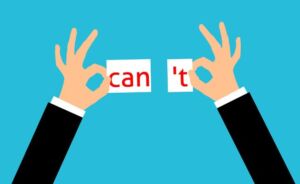 Henry Leo Bolduc returns to the Journal’s pages with some wise advice about the uses of language in hypnosis. Although he focuses his remarks on hypnosis, his special field, all that he says can be applied to working with any altered state of consciousness, no matter what it may be called.
Henry Leo Bolduc returns to the Journal’s pages with some wise advice about the uses of language in hypnosis. Although he focuses his remarks on hypnosis, his special field, all that he says can be applied to working with any altered state of consciousness, no matter what it may be called.
We, as hypnotherapists, are involved in a unique profession with vast opportunities. However, some of the terms used in the field of hypnosis itself might be misinterpreted by the public. How do we maximize our field’s therapeutic strengths while minimizing memories of the vaudeville era?
Our professional language is in dire need of renovation. Many words and phrases employed by hypnotists in past decades are now outdated, and often misleading. Some of our new terms are just as ambiguous—and just as misleading.
As simplicity is considered the cornerstone of honesty, we should arrive at straightforward terms that have precise meanings and develop a language that can be understood by all, one that is inclusive. By this process we will eliminate those terms that seem exclusive, power-oriented or elitist, specifically avoiding smug and silly code words and insider language.
I would like to offer these reasons for upgrading hypnotic terminology. A profession’s vocabulary reveals as much about the profession as does the vocabulary of any individual. In my travels, while giving workshops in our own country and around the world, I meet many hypnotherapists and I always enjoy their company. They are wonderful people. Each hypnotist represents—in some way—our entire field, and what’s good for the field of hypnosis is good for each hypnotist, and vice versa. With this concern in mind, I wish to encourage serious debate on the subject of how we can improve our profession’s vocabulary, thereby improving our collective performance in our chosen field.
Rather than invent new words and phrases, I suggest that we eliminate outdated words from our personal as well as our professional vocabulary. The following six terms and phrases are a few of the main culprits:
- Under hypnosis. What does this phrase imply? It’s a concept that generates fear of a lack of control, or of loss of control entirely, while in truth, persons experiencing hypnosis retain more functional capacity than in their normal “conscious” state. In common parlance, we say that it is unfortunate to be “under the weather,” meaning that one is ill, or “under the influence,” meaning that one is drunk or on drugs. Surely our profession neither needs nor wants to be associated with such negative concepts!
A better phrase is: An individual experiences hypnosis. This is a positive statement, empowers the person involved, and has the primary virtue of being true.
- I put him/her under. What a bold and foolish statement! No one can hypnotize anyone else. Hypnosis is an inner experience of consent—no one can do it for, or to, anyone else. Only a fool or a novice (or an old-time vaudeville showman) would say “I put him under.” Every intelligent hypnotist realizes that the job description is to create an environment in which hypnosis can most easily occur. To believe or imply otherwise exposes a questionable power complex and a flagrant disregard for the integrity of others.
A better phrase is: The hypnotist facilitates hypnosis. Humbling as it may be to some, in truth, this is all we do.
- Susceptible. This is another outdated word. People are said to be susceptible to things and conditions they do not want, such as colds or the flu. By contrast, people are “receptive” to things they do want. Individuals willingly turn to hypnosis to help them eliminate bad habits, or to build positive new ones, or to explore their pasts, and so they are receptive to it, not susceptible. Receptive is the better word.
- Subjects. This is by far the one word that must immediately be stricken from our vocabulary and from all printed texts within our profession. A person is not a “subject” for hypnosis. The term is rarely used today in any other healing profession, and should not be used in ours. It carries many unwanted, negative connotations.
“Subjects” was used in earlier times when scientific research on human beings was first conducted; the word is still applied to laboratory animals. When used in reference to human beings in either research or therapy, it implies that the person has no personal control and is simply being manipulated and measured, like a lab rat running a maze. It also has broader meanings of inferior status and subservience, as when someone is the subject of a king or queen.
The American Psychological Association has banned the word for decades; they recommend that the word “participant” be used for people who volunteer for research studies, “client” for a person seeking therapy. In research, other good terms are “volunteer” and “co-researcher.” (Note the emphasis on the concept of “volunteering:” research with human beings is not to be carried out without the participants’ prior willing and informed consent).
The better words here are participant, volunteer, or co-researcher. Or, in therapy situations, simply “client.”
- “Hypno-researcher” and “Hypnotherapist.” The differences between these two terms are often blurred in our professional literature and vocabulary, probably because so many people in our field are both. But the two terms have entirely different meanings. A “hypno-researcher” designs research studies in which he or she utilizes hypnosis, analyzes data, and interprets his or her findings, but without primarily therapeutic goals. Even if the research is designed to examine a particular technique for its therapeutic outcome, the hypno-researcher must use the same technique on all participants even if, as a hypnotherapist, he or she might feel that some other technique would help a particular person more. For the hypno-researcher, the focus is on the research study as a whole.
After the study is finished is the time for the “hypno-researcher” to change hats and become a “hypnotherapist.” Then the hypnotherapist may want to use that other technique to help the participant, who has also now switched hats and has become the “client.” A hypnotherapist should use hypnosis to its fullest – perhaps in conjunction with other procedures – to achieve the therapeutic goals of the client. The focus for the hypnotherapist is on each client’s individual goals.
Hypnotherapists require the findings of hypno-researchers to keep pace with new discoveries and their applications to therapy. But research alone would be meaningless if it were not applied. Our profession can best thrive by first separating research and therapy, then combining them, knowing that research advances knowledge, therapy applies that knowledge to client betterment and healing, and out of therapy come more questions to be answered by research. Both are necessary and they work together, but they should not be confused.
- “Now I want you to –” is by far the most limiting and egocentric phrase used in our field, and should be immediately discarded. Both Clark (1996) and Magyar (1997) have previously discussed this kind of authoritarian approach in the Journal. The phrase will almost always elicit a negative response by creating immediate wariness within the client, and so it is actually counter-productive. Furthermore, a hypnotist who uses such a phrase may gravely limit the client’s capacity for self-discovery because it implies that the client must obey, do something to satisfy the needs and goals of the hypnotist. In a way, it is another instance of manipulating clients like rats in a maze, a concept I mentioned above. But all therapists are there to guide clients toward their own goals and to help clients deal with their own problems in the best way for them.
Better phrases are: “When you are ready, if you want to you could…” or “If you want to, you might…” or simply “Do you want to…?” Phrases such as these suggest new options to clients but empower them to make their own choices.
- Resistance. Here is another worn-out word that should be thrown in the trash bin. The word implies that the stubborn client is proceeding incorrectly, doing something wrong, “resisting,” even though it may be done unconsciously. But surely we, the skilled highly-trained professional hypnotherapist, are doing nothing wrong!
The reality is that we need to examine our language and our techniques, and to review our whole stance toward the client. We may have created this “resistance” ourselves. Rapport and trust are essential in our field, and if we have not created a sincere rapport with our client, an atmosphere of caring and understanding, our client will be “resistant.” Furthermore, rapport and trust work both ways: Once we ourselves trust our client’s inner wisdom, we will use more empowering words and phrases and less authoritarian techniques, trusting our clients to know what to do to find their healing. And at that point, “resistance” vanishes.
A better way to see “resistance” in a client is to ask ourselves what we are doing wrong. Build trust (both ways), and resistance melts away.
 Conclusion
Conclusion
We must always remember that we are not miracle-workers; we only create an atmosphere for the client’s self-hypnosis and the successful resolution of their issues or problems.
Here are a few closing questions to ponder. What words have you, as a professional hypnotist, found to be misleading or counter-productive in your work? What words or phrases do you routinely use that carry inherently negative concepts? Are you still using old phrases that you were taught according to some old and authoritarian style of hypnosis? How have you refined your hypnosis vocabulary? How have you, in your own way, attempted to bring hypnosis forward from an old out-dated era into the new millennium?
Let us be responsible in our profession. The work we do is exciting and productive. We are innovators, but we must always remember to keep in touch with general common sense. We must learn to use clear, simple language in a strong, meaningful manner. A few concise words, spoken with sincerity and depth, have far more importance than a deluge of meaningless verbiage or patter.
Our words reveal more clearly than anything else who and what we are. Before we can change the world, we must change ourselves. Before we can build a better world, we must improve our own small part of it, and we can do this by renovating our professional language, especially in how we communicate and express ourselves.
The future for hypnotherapy and hypno-research is greater than for almost any other profession, greater than we, perhaps, can imagine now. To be part of our profession’s growth we must all remain open to new knowledge, be eager in our pursuit of truth and clarity, and courageous in discovery. And we must use language that empowers our clients, not ourselves.
References
Clark, R. The influence of the therapist in past-life therapy. Journal of Regression Therapy, X (1), 23-29, 1996.
Magyar, T. The client, the therapist, and the ethical use of language. Journal of Regression Therapy, XI (1), 27-35, 1997.
